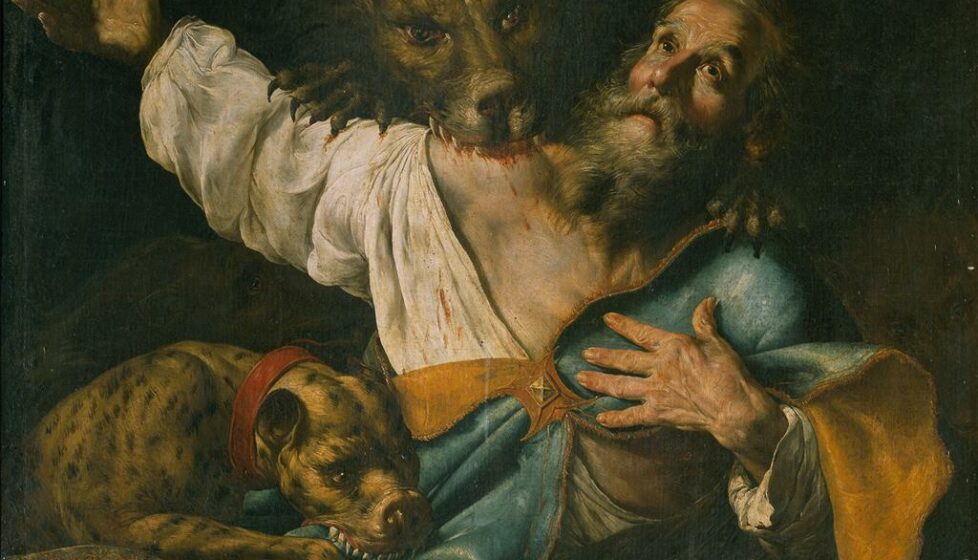Stories of Christian Martyrs: Chester A. “Chet” Bitterman III
Colombia

Chet Bitterman went in with his eyes open. He knew that sharing
the Gospel could be costly. It could cost everything. But he
willingly went to Colombia to bear the Good News. “…I find
the recurring thought that perhaps God will call me to be martyred for
Him in His service in Colombia. I am willing.” Bitterman penned those
words in his diary before he and his wife, Brenda, arrived in Colombia.
Bitterman’s devotion to his Savior was evident: “I am willing.”
When the gunmen came into the Wycliffe Bible Translators guest
house in Bogotá, Colombia, early the morning of January 19, 1981, they
were looking for the mission’s leader, a more high-profile hostage whose
captivity could somehow help their cause. Who they got instead was
Chester A. Bitterman III, “Chet” to his friends. The next day President
Ronald Reagan took the oath of office, and American hostages left Iran
after 444 days in captivity. Their ordeal was over, with the Bittermans’
just beginning.
They hadn’t been in Colombia long. Their mission career and their
translation work lay before them. They had gone to language school and
helped in various tasks for Wycliffe, including managing the guest house,
serving as buyer for goods needed by mission workers and even as radio
operator. Finally, it seemed God was opening the door for them to move
into the jungle with the Carijona Indian tribe to begin language study
and eventually translation work. In the days before M-19 terrorists kidnapped Bitterman, he had been scouring hardware and building-supply
stores, stockpiling materials for their move to the Carijonas.

The terrorists’ demands were twofold. First, they wanted their views
printed in several of the world’s leading papers. The second demand was that all Wycliffe mission workers be out of Colombia in thirty days, or
Bitterman would die. Wycliffe’s stand was clear: The work God had called them to in Colombia was not complete, and they could not desert the effort. Bitterman wouldn’t want them to leave with so many people still unable to read God’s Word in the language of their heart.
Negotiations went on in fits and starts. Brenda and her two young
daughters—one barely old enough to walk—waited and prayed and
hoped. They prayed Bitterman would remember the Scriptures that he
had faithfully memorized. The guerrillas maintained their stance that
Wycliffe must leave; Wycliffe agreed to leave when their translation work
was done, more than a decade into the future. His captors released a letter from Bitterman. His words carried not discouragement and worry, but an exciting sense of mission and possibility:
The Lord brought 2 Corinthians 2:14 to mind: “But thanks
be to God, who always leads us in triumph through the Lord
Jesus Christ.” The word for “triumph” was used for the
Roman victory parades, when the soldiers were received back
at home by the cheering crowds after a successful battle…I
have had a lot of free time to think about such things as Daniel’s three friends…and Paul and Silas’ experience in the jail
at Philippi.
In the case of Daniel’s friends, God did something very
unusual through His power for a specific purpose, so that
through everything, all concerned would learn (i.e., have their
misconceptions corrected) about Him. The result of the experience was that everyone learned who He was. Remember
Paul and the Praetorian Guard. Keep this in your thoughts
for me. Wouldn’t it be neat if something special like this
would happen?
Brenda was thrilled to see that her prayers were being answered.
Bitterman was remembering the Scriptures. Even as he was held hostage, the Lord’s work was being accomplished. Colombian media reports about Wycliffe’s work included reference to the Gospel message and shed a positive light on Christian workers. Bible verses Bitterman had mentioned in his letter were printed in Colombian newspapers. The Word was going out. On the morning of March 7, forty-eight days after Bitterman’s
abduction, his life was ended by a bullet to the chest. His body was left
on a bus.
A sedative in his blood suggests he may have felt no pain.
And still the message went out, even after his death. A radio interview with Bitterman’s parents was broadcast numerous times across the
country. “I’m sorry I won’t see Chet again in this life,” his father said,
“but I know I’ll see him again in Heaven.” He went on to say how much
Bitterman loved the Colombian people. His mother said that even though
her son had been killed, she still had love for Colombia and its people.
“We’re hoping the guerrillas come to know God,” she said.
Bitterman was buried at Loma Linda, the Wycliffe base where he’d
lived and worked. His burial in Colombian soil carried its own message
of his love for that land and its people. At memorial services around the world, men and women stepped forward to answer God’s call to full-time service, to take Bitterman’s place on the dangerous front lines of ministry work. Applications to Wycliffe skyrocketed in the months after his death.
“Wouldn’t it be neat if something special like that would happen?”
Bitterman’s words carry the echoes of prophecy. Something special did
happen. God’s Word went forth; people’s hearts were touched and
changed. Through one man laying down his life for his Savior, many
lives were changed. The avalanche of blessing and ministry began with
three words: “I am willing.”
This story is an excerpt from Foxe: Voices of the Martyrs. You can get your own copy free with any donation to The Voice of the Martyrs.



 Guide
Guide